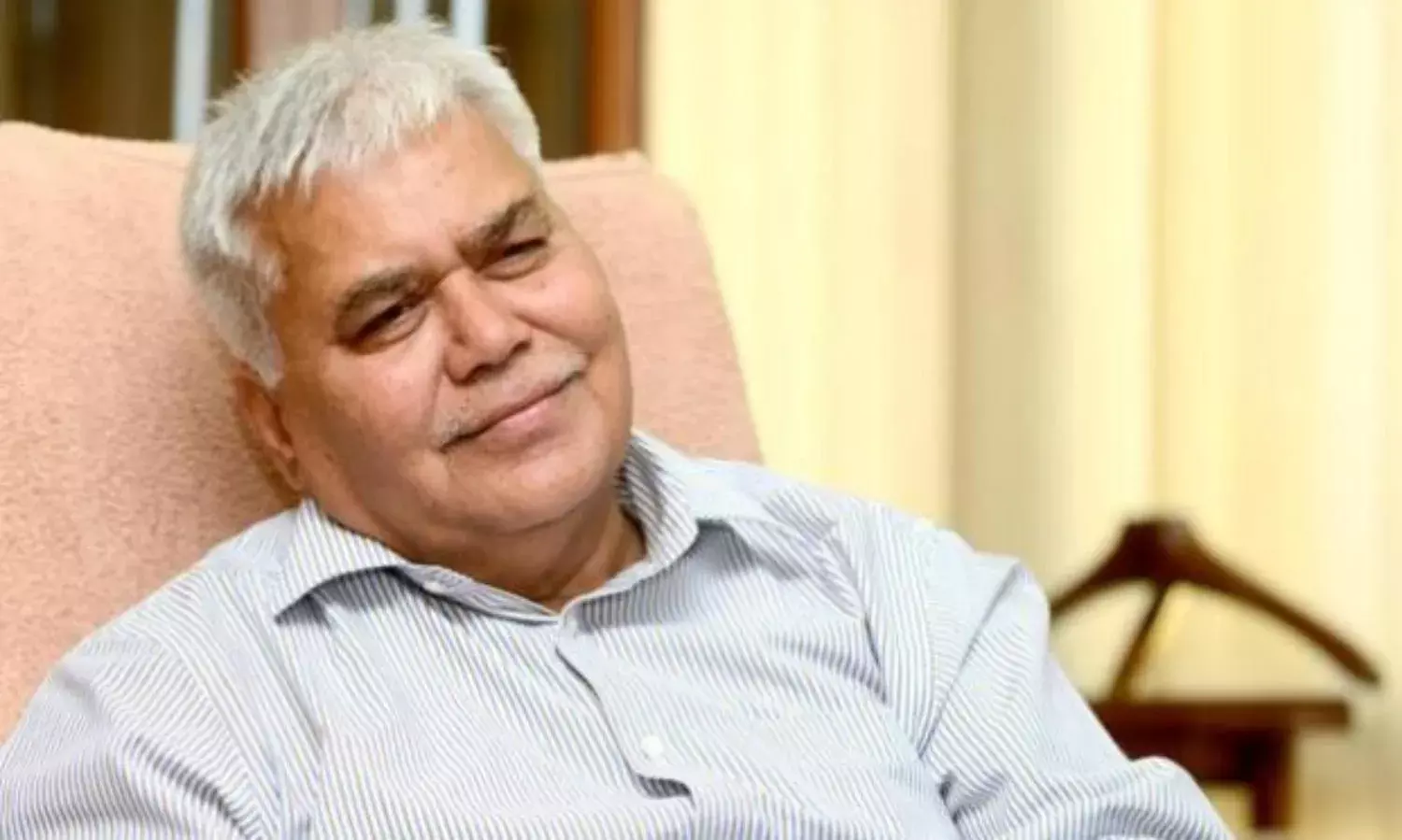AADHAR: What Constitutes 'Harm' For TRAI Chairperson, Do Starvation Deaths Of Those Denied Food Count?
RS Sharma's Twitter challenge

Telecom Regulatory Authority of India (TRAI) Chairman R S Sharma on Saturday tweeted his Aadhaar number, with the “challenge” to show how the knowledge of the 12-digit number could be misused to “harm” him.
Responding to his challenge, Twitter users posted his cellphone number, residential address and other personal details. However, Sharma said these details do not cause him any harm and were already available in the public domain.
“My Aadhaar number is XXXX XXXX XXXX (masked). Now I give this challenge to you: Show me one concrete example where you can do any harm to me.” So tweeted Telecom Regulatory Authority of India (TRAI) chairperson R.S.Sharma and was flooded with thousands of tweets giving out his personal details. Sharma, involved with the Twitterati for long hours, rejected most of these claims as old, maintaining he had not challenged them for finding his personal details but for doing him “harm”, And insofar as that was concerned the challenge was still open.
One is not sure what Sharma means by harm, but probably he is referring to bank account transactions and other such violations. While the Twitterati have been engaging with him in some detail, there are others in this country who have felt the power of the Aadhar card that Sharma so strongly advocates. But in its absence. Starvation deaths have been reported in homes denied rations because they did not have an Aadhar card, and surely this is gross “harm’ where lives are compromised because of the inability of the poorer sections to comply with government whims at any given point in time.
There was a temporary stir, with little to no response or action from the government in October last year, when the media reported the deaths of at least six persons of starvation in Jharkhand in the preceding six months. Why? Because they were denied rations from the Public Distribution Ships as they did not have Aadhar cards. The government of course insisted they were sick, but their families all said they had died of hunger.
Around half-a-dozen people have allegedly died of starvation in Jharkhand in the last six months. Most of them were reportedly denied rations from the Public Distribution System shops for failing to have Aadhaar-based biometric authentication. Two women — one in Giridih and the other in Chatra district — died of alleged starvation last week, prompting Chief Minister Raghubar Das to order a probe. The government reports said the women were sick; family members claimed they died of hunger. They had nothing left to eat in their homes. All these deaths took place after the BJP government in Jharkhand cancelled over eleven lakh ration cards stating that these were not linked to Aadhar. Significantly, given the poverty and lack of facilities, the count last year disclosed that of the 2.3 crore people covered by PDS in Jharkhand only 1,7 crores had Aadhar cards.
In recent days the death of three minor girls in Mandawali, East Delhi was reported. All three--2,4, and 8 years of age---had all died of starvation according to the postmortem reports. And organisations are already looking into the denial of rations because the children and their mentally unstable mother were not on the Aadhar records. Delhi Rozi Roti Adhikar Abhiyan for one has issued a statement pointing towards the “lack of food security and social security of the poor and marginalised in Delhi.” It has further said that the barriers which prevent food security for the underprivileged need to be removed. And “aking food security conditional upon peoples’ ability to produce identity proof/residence proof/ Aadhaar etc. is inhumane and a violation of the right to life guaranteed by the Constitution”.
So while Sharma might have triggered a Twitter storm, the implementation of the Aadhar scheme that he swears by, is already causing grave harm and threatening the lives of India’s poor. The social impact of any such scheme cannot be ignored, as the upper echelons of society have the wherewithal to protect themselves from “harm” but the poor are exposed directly to the inhuman impact of such schemes and linkages. Instead of gimmicks the TRAI chairperson would have done well to lend his powerful voice to those insisting that Aadhaar authentication must not be made mandatory for food security or as the activists and concerned organisations have been insisting, to social welfare programmes.
In a lighter aside, Sharma has not said what he will do if he fails the challenge. In case one of the thousands responding to him are able to cause him “harm” on the basis of his revealed Aadhar number---as it is ordinary folk are already publishing his personal details, bank account numbers and even the Pan card numbers. Will he then move to pressure the government and join the petitioners who have moved the Supreme Court to abolish this controversial scheme?



